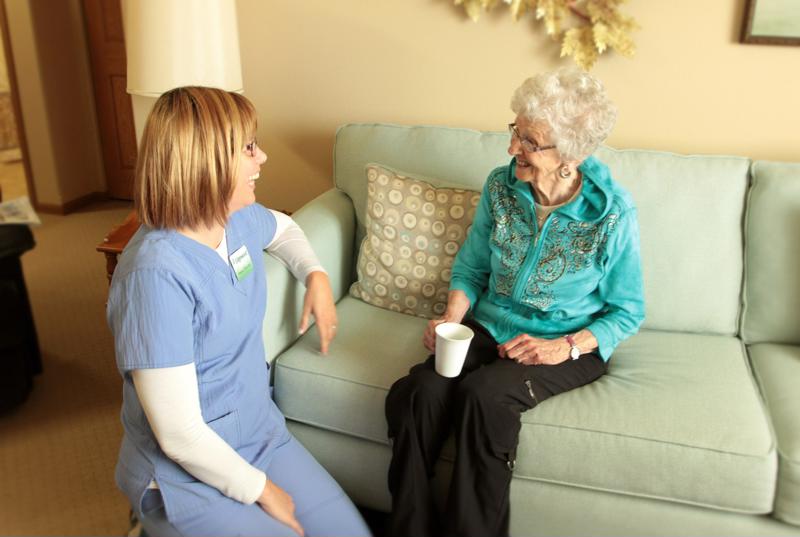
Alzheimer’s disease is becoming increasingly more common among older people. According to the Centers for Disease Control and Prevention, the number of people diagnosed with Alzheimer’s disease doubles every five years after 65. If your loved one suffers from this disease, you might find it very challenging to communicate with him. Since dementia residents lose memory, they have difficulties having conversations with others. Here are six tips for communicating with those affected by Alzheimer’s:
1. Speak in short sentences
Since those affected by Alzheimer’s can’t process a lot of information at once, the Alzheimer’s Association suggests speaking in short sentences. If you use longer, more complicated sentences, your loved one might not comprehend what you are saying and become frustrated.
Find Senior Living Near Me
“Alzheimer’s disease is becoming increasingly more common among older people.”
2. Make eye contact
When communicating with a person with Alzheimer’s disease, sit directly across from her and make eye contact. If you try to speak to your family member while across the room, she might not realize you are speaking to her. If your loved one sees you, she will be able to focus on what you say to her.
3. Don’t interrupt
A person with Alzheimer’s disease may take a little longer to respond to your questions, so remember to be patient. If you interrupt your family member in the middle of a sentence, he may become frustrated.
 Be patient when communicating with someone affected by Alzheimer’s.
Be patient when communicating with someone affected by Alzheimer’s.4. Remove distractions
Dementia residents have shorter attention spans, so they have more challenges focusing during conversations. That is why it is crucial to remove all distractions before attempting to communicate with your loved one. If background noise comes from a television or radio, your family member will be less likely to process what you say.
5. Avoid Arguing
There is no point in arguing with someone who has Alzheimer’s disease. Disagreeing with a dementia resident will likely make her angry or upset. If you don’t agree with what your loved one says, change the subject to something more pleasant.
6. Please Don’t Use Baby Talk
An Alzheimer’s resident may have trouble understanding you sometimes, but that doesn’t mean you should talk to him like a child. Using phrases like “That’s a good boy” may offend your loved one. Always be respectful when communicating with a person with Alzheimer’s disease.




